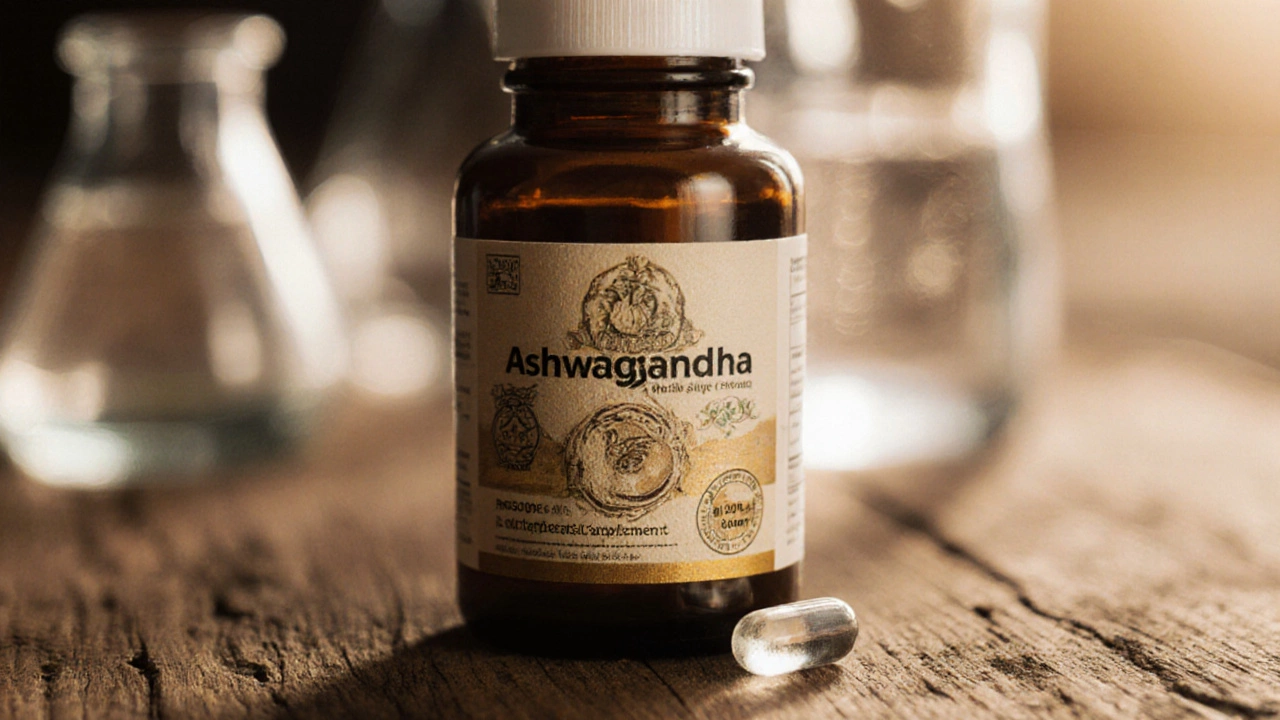- Home
- ::
- Is Ashwagandha Safe? Risks, Dosage & Who Should Avoid It

Is Ashwagandha Safe? Risks, Dosage & Who Should Avoid It
Ashwagandha Safety Checker
When you hear about ashwagandha safety, the first thing that pops up is the promise of lower stress and better sleep. But does the herb really pose any risks? Below we break down what the science says, who should think twice, and how to use it safely.
What is Ashwagandha?
Ashwagandha is a root of the plant Withania somnifera, traditionally used in Ayurvedic medicine as an adaptogen to help the body cope with stress. It’s also called Indian ginseng or winter cherry. The active compounds- withanolides, alkaloids and saponins- are believed to modulate cortisol, boost immune function, and improve energy.
How Safe Is It? The Evidence in Plain Language
Most clinical trials report mild side effects at common doses (300‑600mg of standardized extract per day). A 2023 meta‑analysis of 15 randomized controlled trials involving over 1,200 participants found:
- Gastro‑intestinal upset (nausea, diarrhea) in 4% of users.
- Drowsiness or mild sedation in 2%.
- No serious adverse events reported when taken under 1,000mg daily for up to 12 weeks.
However, safety data beyond three months and at higher doses remain limited. The FDA classifies ashwagandha as a dietary supplement, meaning it’s not pre‑approved for safety or efficacy.
Who Should Use It and Who Should Skip It
Based on current evidence, most healthy adults can try ashwagandha without major concerns, but several groups need caution.
| Group | Typical Dosage | Known Risks | Key Contra‑indications |
|---|---|---|---|
| Adults (18‑65) | 300‑600mg daily | Minor GI upset, occasional drowsiness | None for most; see drug interactions below |
| Pregnant or breastfeeding women | Not recommended | Insufficient safety data; animal studies show fetal toxicity at high doses | All pregnant/breastfeeding individuals |
| Children (<12years) | Not advised | Lack of pediatric trials; potential hormonal effects | All children under 12 |
| Elderly (>70years) | 200‑400mg daily | Increased chance of blood‑pressure drop if combined with antihypertensives | Those on multiple cardiovascular meds |
| People with thyroid disorders | 400mg daily (if supervised) | Potential stimulation of thyroid hormone production | Untreated hypo‑ or hyper‑thyroidism |

Typical Dosage Guidelines
Most manufacturers sell two formats: a powdered root and a standardized extract (often 5% withanolides). For stress reduction, researchers used 300mg of extract twice a day. For sleep, 600mg taken 30minutes before bedtime showed benefits.
Start low- 150mg once a day- and watch how your body reacts. If you feel any stomach discomfort, split the dose or take it with food.
Drug Interactions You Can’t Ignore
Because ashwagandha can influence neurotransmitters and hormone pathways, it may interact with several prescription meds.
- Benzo‑diazepines (e.g., diazepam, lorazepam) - adding ashwagandha can increase sedation.
- Thyroid hormone replacement (levothyroxine) - the herb might boost thyroid activity, potentially leading to over‑replacement.
- Immunosuppressants (e.g., cyclosporine) - ashwagandha’s immune‑enhancing effect could counteract these drugs.
- Blood‑pressure meds (beta‑blockers, ACE inhibitors) - modest blood‑pressure lowering may cause dizziness.
If you’re on any of the above, talk to a healthcare professional before adding ashwagandha.
Special Situations: Pregnancy, Breastfeeding, and Chronic Illness
Animal studies from 2022 showed high‑dose ashwagandha extracts caused embryonic loss in rats. Human data are scarce, so most experts advise pregnant or nursing mothers to avoid it altogether.
People with autoimmune diseases (e.g., lupus, rheumatoid arthritis) should also be cautious because ashwagandha can stimulate the immune system, potentially worsening flare‑ups.
For individuals with diabetes, modest blood‑sugar‑lowering effects have been noted. While this can be helpful, it may require dose adjustments of insulin or oral hypoglycemics.

How to Choose a Quality Supplement
Because supplements aren’t tightly regulated, look for these quality flags:
- Third‑party testing (USP, NSF, or Informed‑Choice). Look for a batch‑specific certificate.
- Standardized to at least 5% withanolides.
- Transparent sourcing - preferably grown in India’s Kashmir or Ayurvedic farms with GMP certification.
- Minimal fillers; avoid products with artificial colors or excessive magnesium stearate.
Brands that meet these criteria usually list the extraction method (e.g., “water‑alcohol extraction”) on the label.
Quick Safety Checklist
- Start with the lowest effective dose.
- Take with food if you experience stomach upset.
- Monitor blood pressure and thyroid labs after a few weeks if you have related conditions.
- Stop immediately if you notice rash, rapid heartbeat, or severe GI distress.
- Never combine with sedatives or thyroid meds without a doctor’s OK.
Frequently Asked Questions
Can I take ashwagandha every day?
Yes, most studies used daily dosing for 8‑12 weeks without serious issues. Cycle it (e.g., 8 weeks on, 2 weeks off) if you’re concerned about long‑term hormonal effects.
Is ashwagandha good for anxiety?
Research shows a 30‑40% reduction in self‑reported anxiety scores after 60mg of a high‑potency extract taken twice daily for six weeks.
Will ashwagandha raise my testosterone?
A 2021 trial in men with low testosterone reported a modest increase (average 15ng/dL) after 12 weeks of 600mg daily, likely due to its stress‑reducing effect.
Can I take ashwagandha with my migraine medication?
There’s no direct interaction, but because ashwagandha can affect blood pressure, keep an eye on any new headaches and discuss with a neurologist.
Is there a safe way to use ashwagandha during menopause?
Many women use 300mg twice daily to ease hot flashes and mood swings. It’s generally considered safe, but check hormone levels if you’re on estrogen therapy.

 Health and Wellness
Health and Wellness





Write a comment